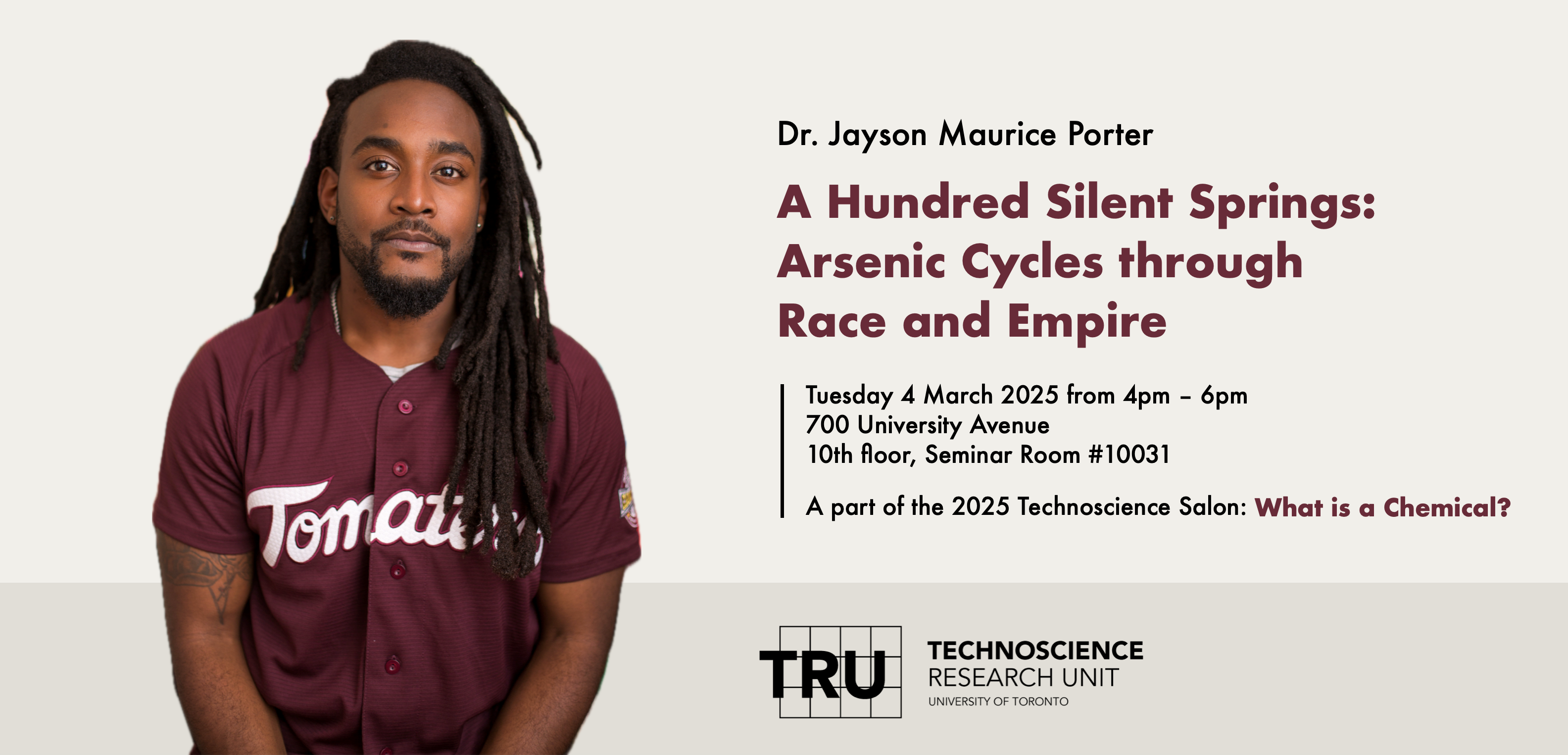A Hundred Silent Springs: Arsenic Cycles through Race and Empire
When and Where
Speakers
Description
This lecture follows the emergence and popularization of arsenic insecticides from the end of slavery in the United States on Jan 1, 1863 to Rachel Carson's Silent Spring (1962). Across these nearly hundred years of increasingly silent springs, arsenic served as an original toxin during the rise of industrial agriculture. It also acted as emerging technology that reinforced and expanded racial divisions of labor in the countryside, especially in regards to race-based justifications for, and practices of, arsenical dusting on cotton pests. Arsenic helped maintain the political economy of white supremacy and US empire. This story begins in the United States but does not end there. This lecture will detail how arsenic travelled through empires as a measure of global agricultural modernization from Mexico to Peru, South Africa, Palestine, and the world over. I insist that we can not fully understand what started and turned the Green Revolution without analyzing how arsenic cycled and propelled through racism and empire during the Second Industrial Revolution or Chemical Revolution (1870-1914). the Age of Empires (1870-1914), and mid-twentieth century.
Bio: Jayson Maurice Porter is an environmental writer and historian who serves as a Presidential Postdoctoral Fellow in the History Department and a Black and Indigenous Climate Faculty Fellow in the Harriet Tubman Department of Women, Gender, and Sexuality Studies at the University of Maryland, College Park. He specializes in black and Indigenous environmental histories, agricultural and food systems, agrochemicals (especially arsenic-based insecticides), cultural histories of ecology and botany, and environmental histories of revolution, resistance, and land reform. He also is the principal groundskeeper and curator of The CEDAR Gallery, centering ecologies, diasporas, and ancestral roots, at UMD's Indigenous Futures Lab.
Beyond academia, he is also an environmental justice practitioner who supports and designs environmental literacy programs with a number of institutions and communities, such as the Chicago Teachers’ Union Environmental Justice Freedom School and Rutgers University’s Black Ecologies Lab. Lastly, he is an editorial board member of both the North American Congress on Latin America (NACLA) and Plant Perspectives: An Interdisciplinary Journal, and serves as the Board Chair of One Square World (1SW), a non-profit organization dedicated to creating liberatory systems for racial and environmental justice.
Organizer: This event is part of the 2025 Technoscience Salon, hosted by the Technoscience Research Unit at the University of Toronto. Launched in 2008, the Technoscience Salon is an open forum for entangling intellectual and political questions about technoscience while remixing the disciplines composing Science and Technology Studies (STS). This year, the salon is asking: What is a Chemical?



